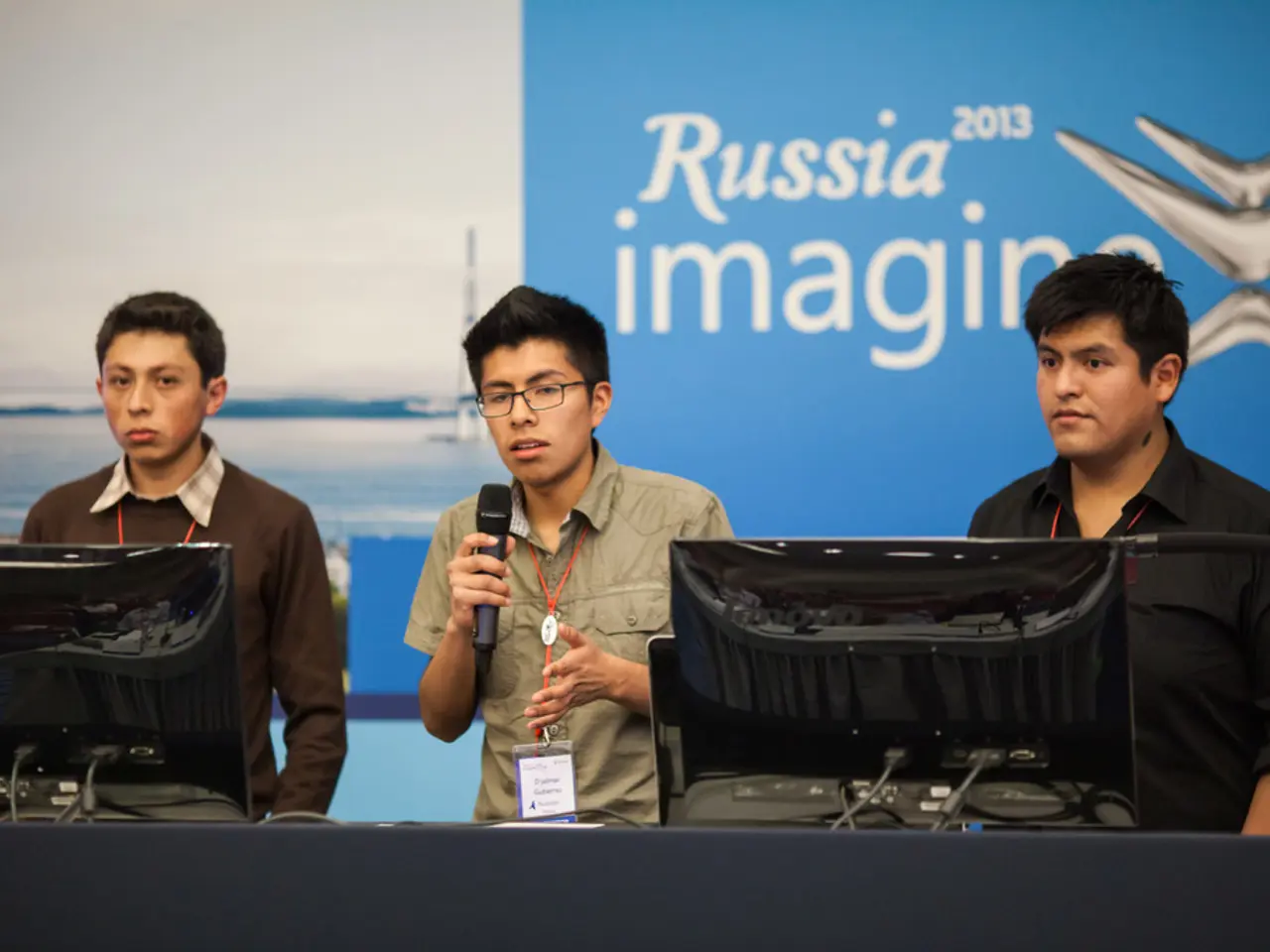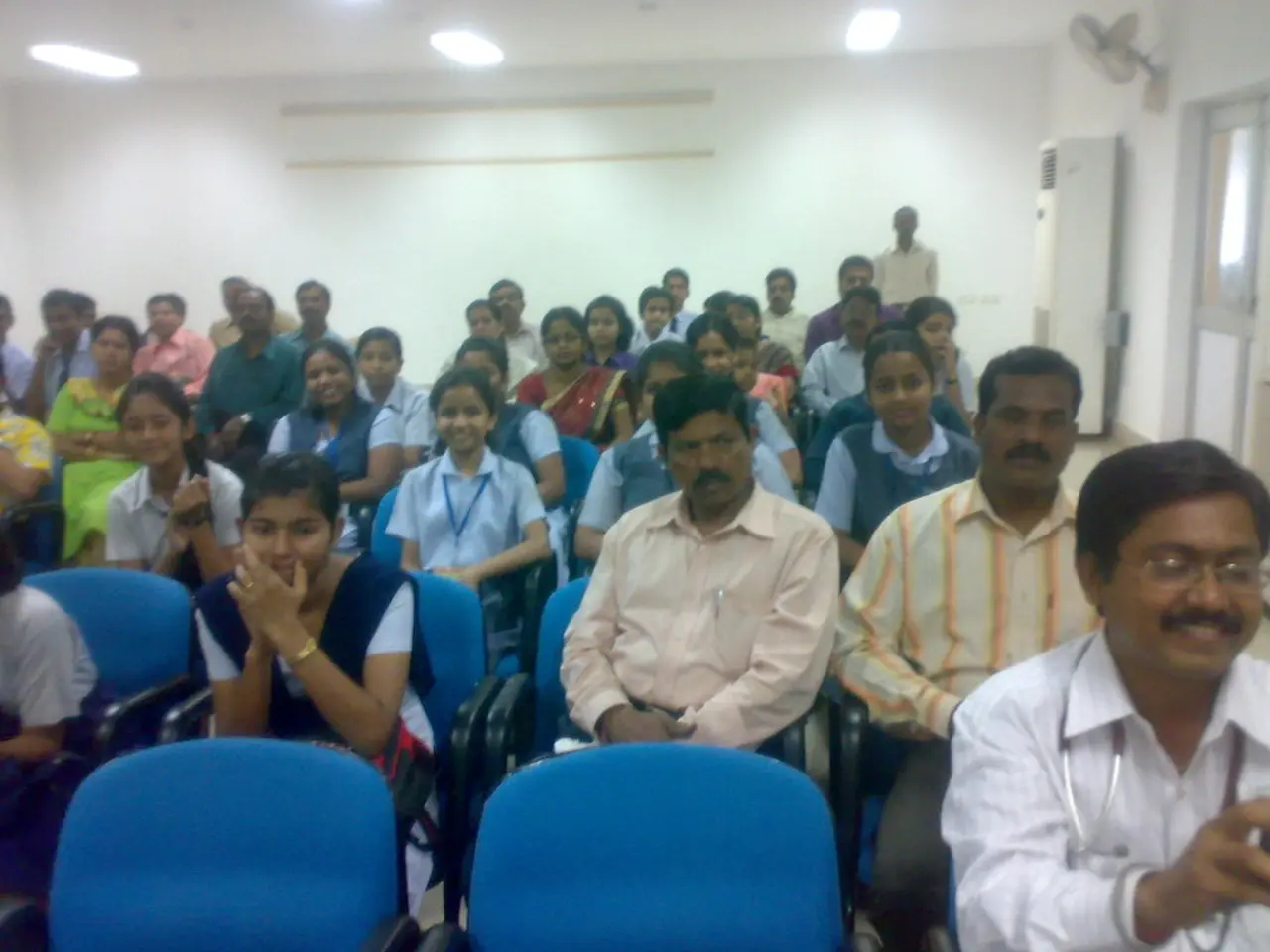Indian national security advisor visits Moscow amid escalating tensions following American tariff threats.
In a move aimed at economically isolating Russia, the United States has imposed additional tariffs on Indian imports, particularly those of Russian oil, as part of a broader strategy to curtail the Russian economy. The US government views India's continued imports of Russian oil as undermining its efforts to counter Russia's harmful activities and to impose economic costs on Moscow to force a peace arrangement.
The US President issued an Executive Order on August 6, 2025, imposing a 25% tariff on imports from India, effective August 27, targeting India’s direct or indirect importation of Russian-origin oil. This action is part of the US's sanctions and economic pressure intended to curtail the Russian economy, which is strained by military expenditures and inflation due to Western sanctions. The US is also considering imposing similar tariffs on other countries importing Russian oil.
India, however, remains reluctant to upend its generally cordial and long-standing relations with Russia. Its stance is influenced by its strategic priority on energy security and cost-effectiveness. New Delhi has been purchasing discounted Russian crude oil despite the sanctions pressure, citing potential increases in its oil expenses by up to $11 billion if it were to find alternative suppliers.
The US pressure extends beyond oil imports to Indian purchases of Russian military equipment, as such dealings are seen to support Russia’s defense capabilities amid its conflict in Ukraine, thereby undermining US and allied efforts to constrain Russia militarily and economically. The Indian foreign ministry considers US pressure to stop buying Russian oil as "unjustified and unreasonable."
Analysts suggest that US President Donald Trump's anger with Indian purchases of Russian military equipment and oil overlooks the historically close ties between New Delhi and Moscow. The visit of India's National Security Advisor, Ajit Doval, to Moscow on Wednesday, coinciding with that of US envoy Steve Witkoff, adds another layer of complexity to the ongoing geopolitical standoff.
Ukrainian President Volodymyr Zelensky's chief of staff, Andriy Yermak, has stated that Russia must be deprived of the ability to obtain components from other countries to stop the killing of Ukrainians. This statement comes after Ukraine has found Indian-made components in Russian drones fired on the country.
Despite a significant drop in recent years, India still depends on Russia for key parts. Between 2009 and 2013, Russia supplied 76 percent of India's military imports. However, India could find other suppliers "relatively easily with little economic impact," according to Shilan Shah of Capital Economics.
Domestically, it would not play well for India to be seen as caving to Trump's demands. The US's demands come at a time when India is navigating a delicate balance between its strategic partners and its energy security needs. As the situation continues to unfold, it remains to be seen how India will respond to the US's escalating pressure.
- The US's strategy to economically isolate Russia includes imposing tariffs not only on Indian oil imports but also considering similar measures against other countries that import Russian oil.
- India's continuous purchase of discounted Russian crude oil, despite sanctions pressure, is influenced by its strategic priority on energy security and cost-effectiveness.
- The US is not only putting pressure on India to stop importing Russian oil but also expresses concern over Indian purchases of Russian military equipment, which it sees as supporting Russia's defense capabilities amid its conflict in Ukraine.
- Analysts suggest that the US President's anger with Indian purchases of Russian military equipment and oil overlooks the historically close ties between New Delhi and Moscow.
- Domestically, it would not be politically advantageous for India to be seen as caving to the US's demands, as it navigates a delicate balance between its strategic partners and its energy security needs.




